


Unconventional Teaching Methods
Whether you are a teacher who is looking for some inspiration, a student who wants to spice up their learning habits, or just any person with an interest in alternative pedagogy – this article is for you. These are five unconventional teaching methods – or learning, if you prefer – drawn from the experience of our Bachelor course in Alternative Education. We hope they’ll inspire you to approach learning for what it is – a fun and fulfilling activity, to its core.
1. Learning by doing
Dewey’s famous formulation of the ‘Learning by Doing’ theory is a surprisingly versatile and effective unconventional teaching method. At its base, are the ideas of getting close to your object of studies, and of purposefully engaging in a conscious learning process that involves reflections and self-assessments. This makes it so that you can learn almost anything “by doing” – even the most theoretical subjects – if you have the right mindset. If you’re wondering how this would look like in practice, check out this article on 3 examples of Learning by Doing.
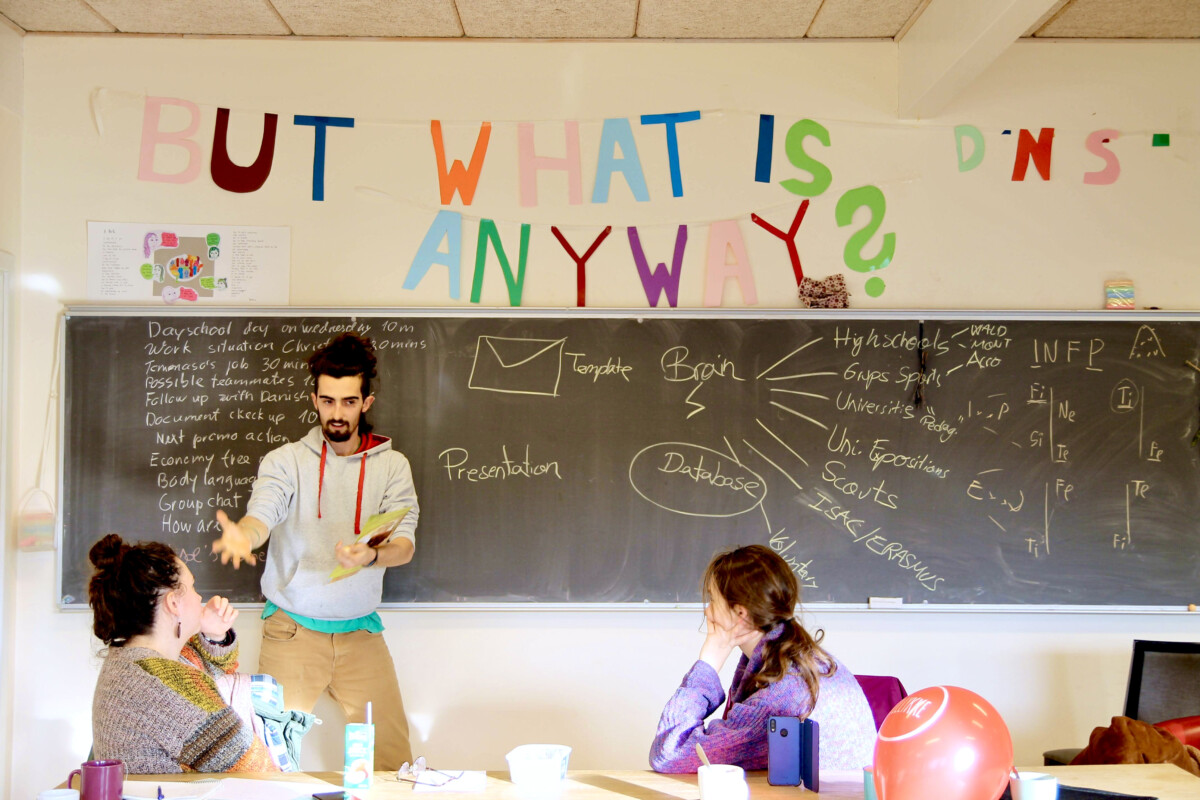
2. Critical pedagogy
Critical pedagogy is there to remind us that education should not involve dutiful memorization of pre-established content – it should rather prioritize actual understanding and reflection of content that is relevant to the lives of the students themselves – and to the society they live in. Henry Giroux, one of the main theorists of critical pedagogy, goes as far as to consider teaching an inherently political act – and schools places where students ought to learn to analyze and critique the power relations and structural issues of their society.
In practice, critical pedagogy can take many shapes – from reading and commenting the news together, to interesting debates, to studying critical voices from the past and the present. Quite any professional choice in the scope of critical pedagogy, really, will not fail to result in some inspiring unconventional teaching methods.
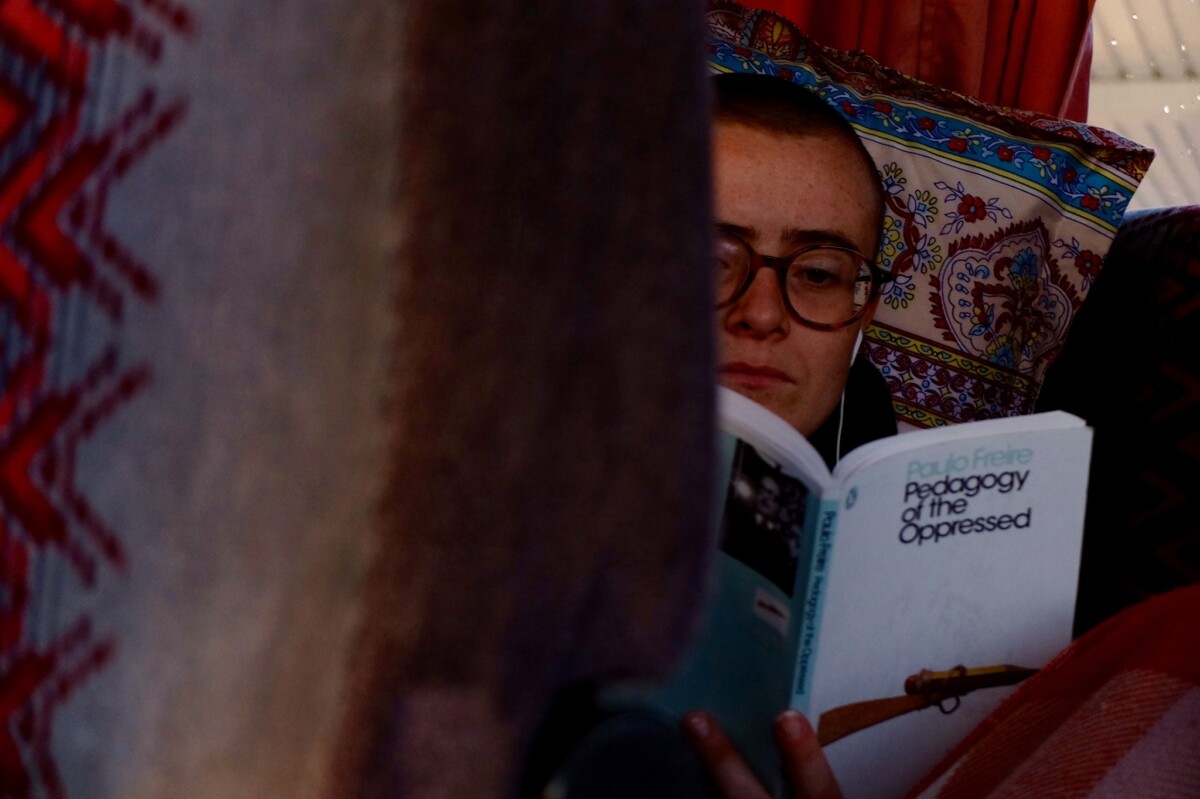
3. Travel to learn
“Learn to Travel, Travel to Learn” is actually one of the slogans of our Teacher Training College – we couldn’t refrain ourselves from including it here. Study trips, if well done, can be an incredible learning opportunity, to the extent of sometimes being life-changing experiences, really. The thing is – traveling creates the perfect context for effective learning. They place the learner in close contact with their object of studies, they allow them to go beyond theory and form new skills, memories and opinions, they make the whole process engaging and exciting. Things learnt on a trip stick to your memory together with the vivid flashes of the places you saw, the people you talked to, and the unique sensations of such an intense experience. Most importantly, they most often expose you to the relevance of what you are studying – inescapably proven by the situations you meet and witness yourself.
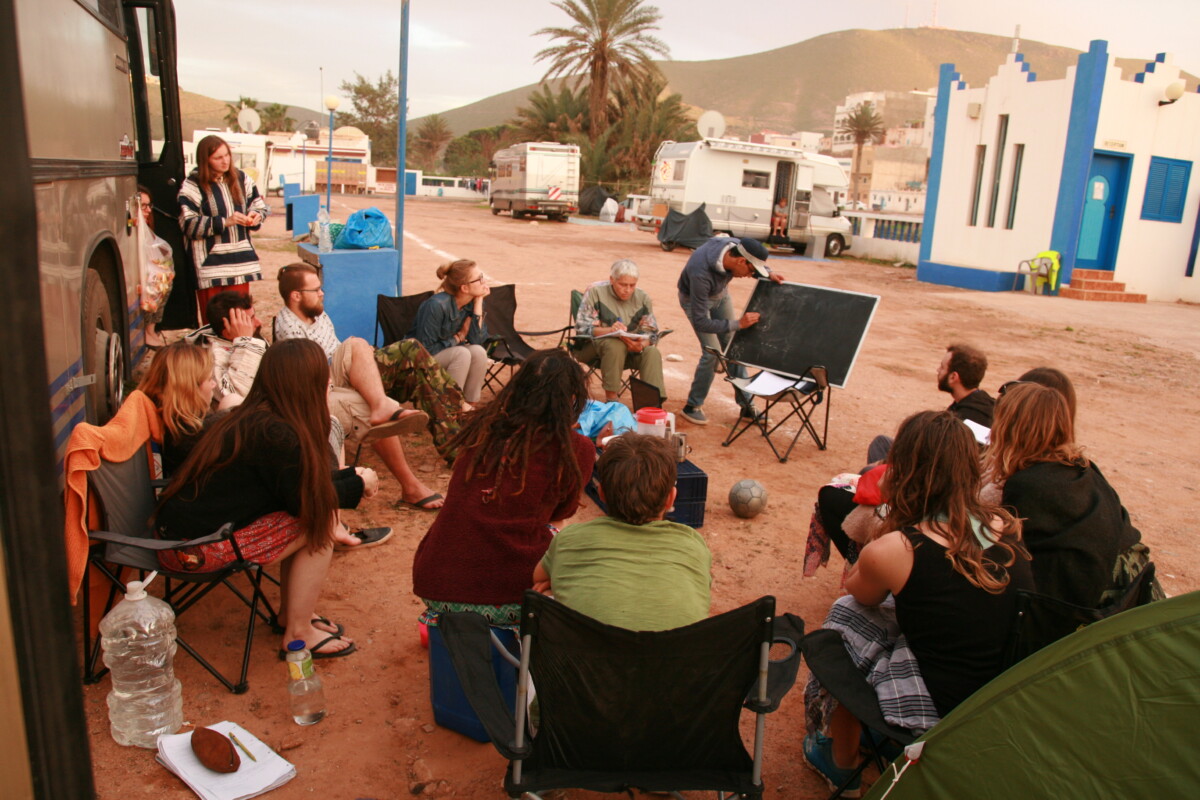
4. Investigations
What we, at our Teacher Training College, call ‘investigations’, are in fact investigative researches that go beyond the pure consumption of second-hand content and extend to experiencing the topic you are studying yourself – or to getting close to whoever does. Naturally, this goes very well with study trips: imagine finding yourself in a foreign country and learning about the local culture not by reading about it in books or on the internet – but by meeting the people who share that culture and getting an insight into their lives.
But investigations don’t necessarily entail foreign settings and exotic topics: think about investigating the causes of Climate Change in your local countryside, for example – or any other topic that’s appropriate for your situation.
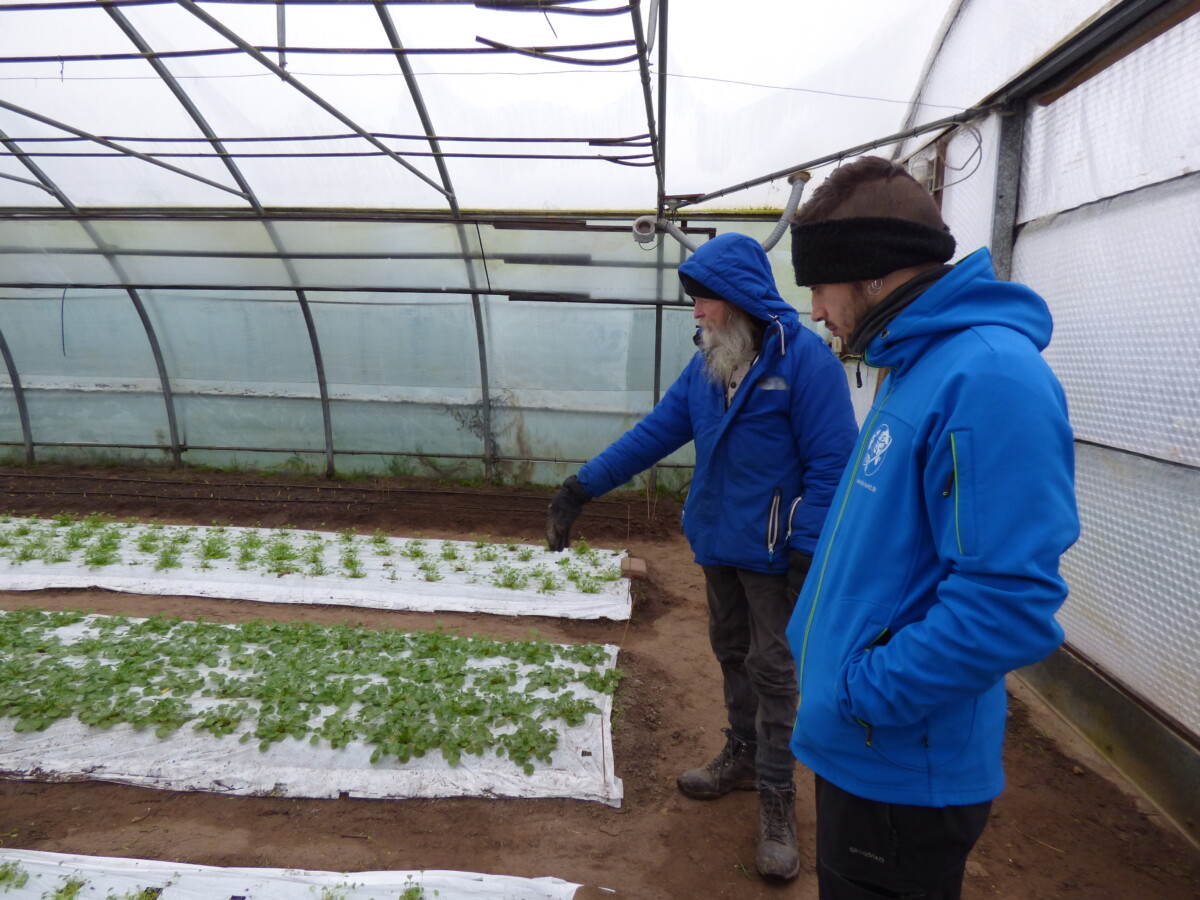
5. Collective learning
An unconventional teaching method that is quite often overlooked is as simple as it sounds – to make learning a collective responsibility, rather than an individual one. If you are a teacher, this will mostly mean promoting group work and experimenting with similar ideas, such as group exams and tests. At our college, we practice team-based pedagogy: teams of around 10 students are together about taking decisions over their own education, for example, and they only go for exams after making sure that everyone in the group is prepared for it. This trains everyone’s social and collaborative skills, and opens the space for a number of activities that would otherwise not be possible – such as organizing big scale events and traveling together safely.
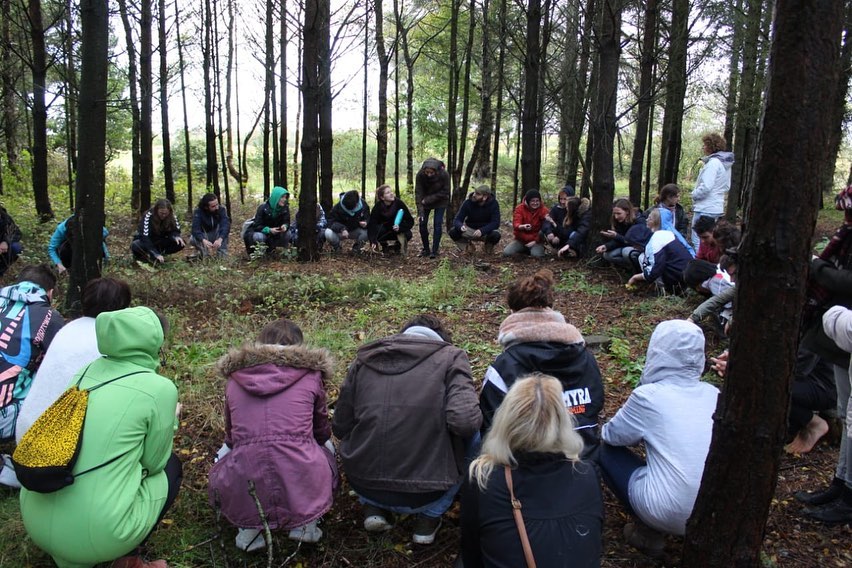
Conclusion
These were just 5 unconventional teaching methods among the many we practice at our Bachelor course in Alternative Pedagogy. We hope to have inspired you with some new ideas! We’d like to know your thoughts on this article, and on teaching and learning in general – so feel free to leave a comment down below!
And if you are interested in our pedagogy, you might want to read about our 10 pedagogical principles here.
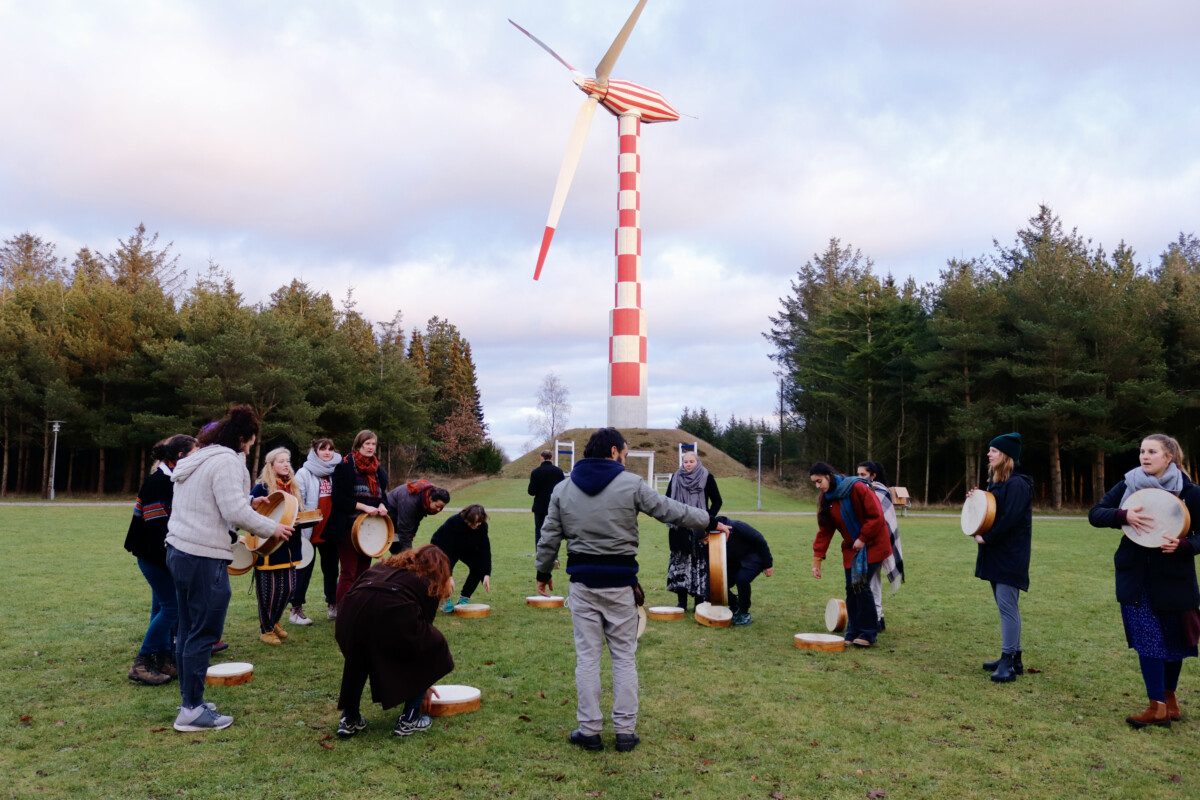
Learning by Doing at our College
Learning by Doing is one of the essential principles of our pedagogy, at the Necessary Teacher Training College. If you want to know more about our pedagogy, read about our pedagogical principles or contact us!
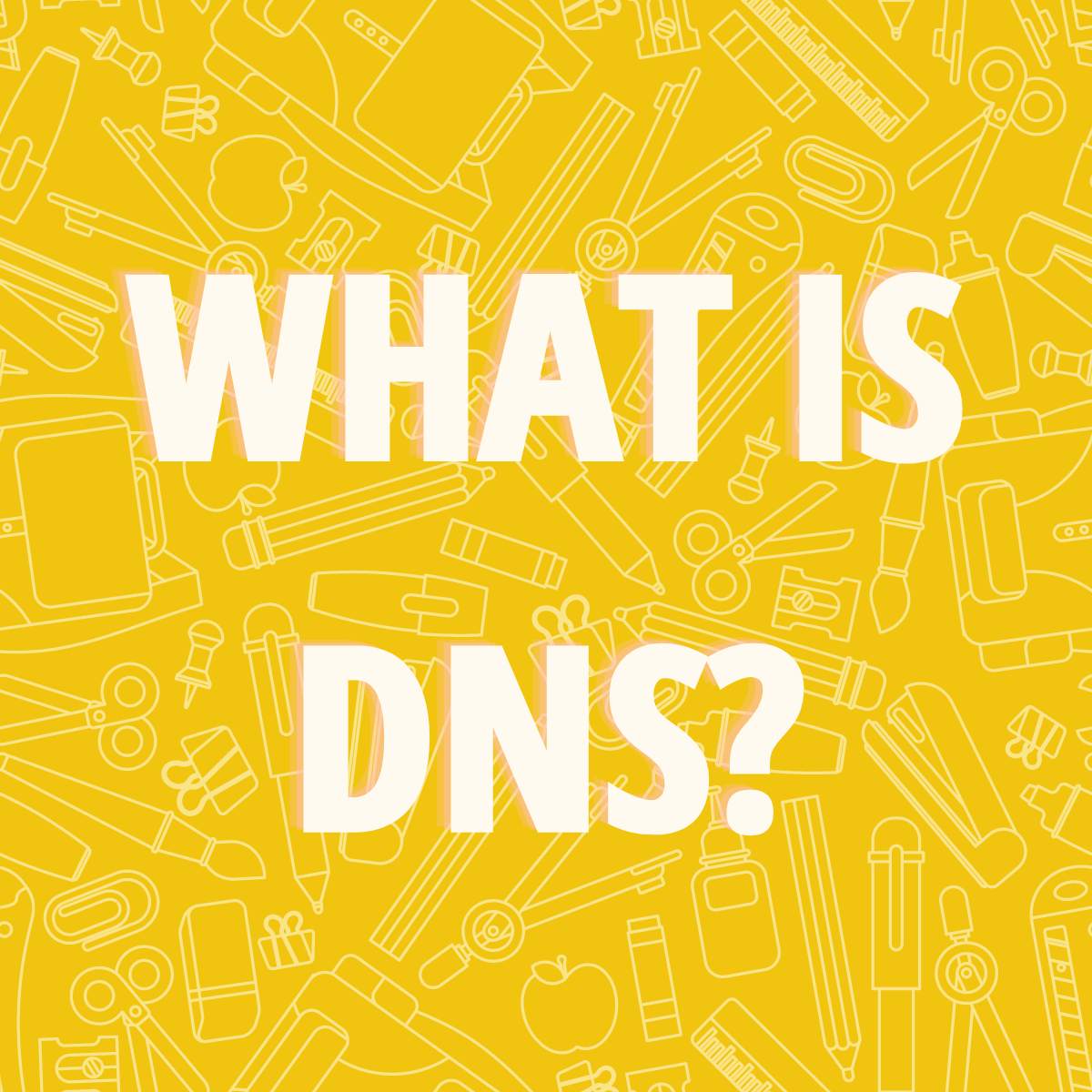
What is DNS?
“The Necessary Teacher Training College” is an alternative higher education aiming to train progressive personalities who are able to understand and respond to the many challenges of our times.
Based in Denmark, our 4-year Bachelor Programme aims to enable its students to become global citizens and proficient educators.
Since DNS was established in 1972, over 1.000 graduates have played an important role in bringing equitable quality education to children and youth, as well as in all sorts of other projects and development programmes worldwide.
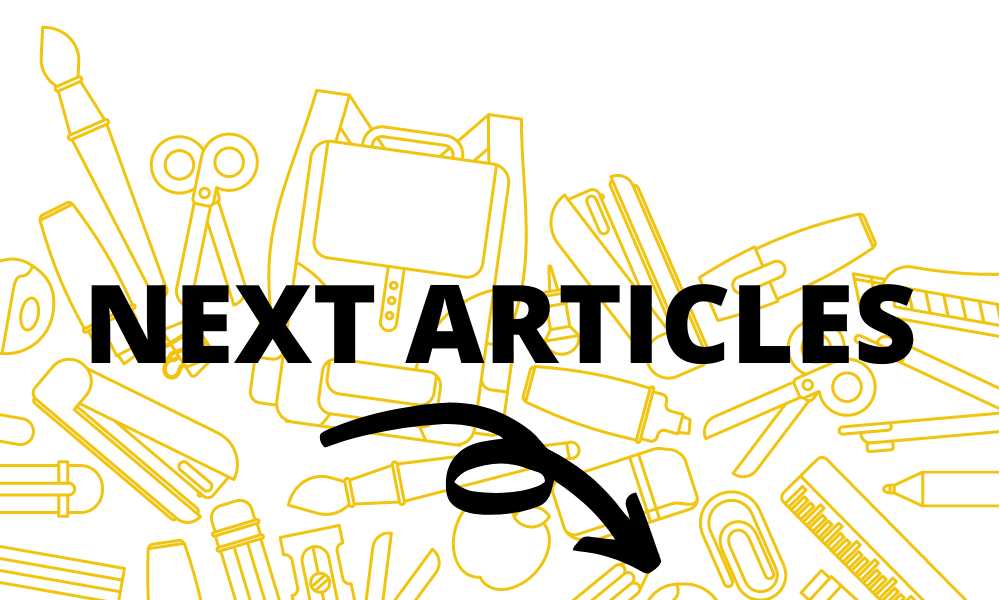
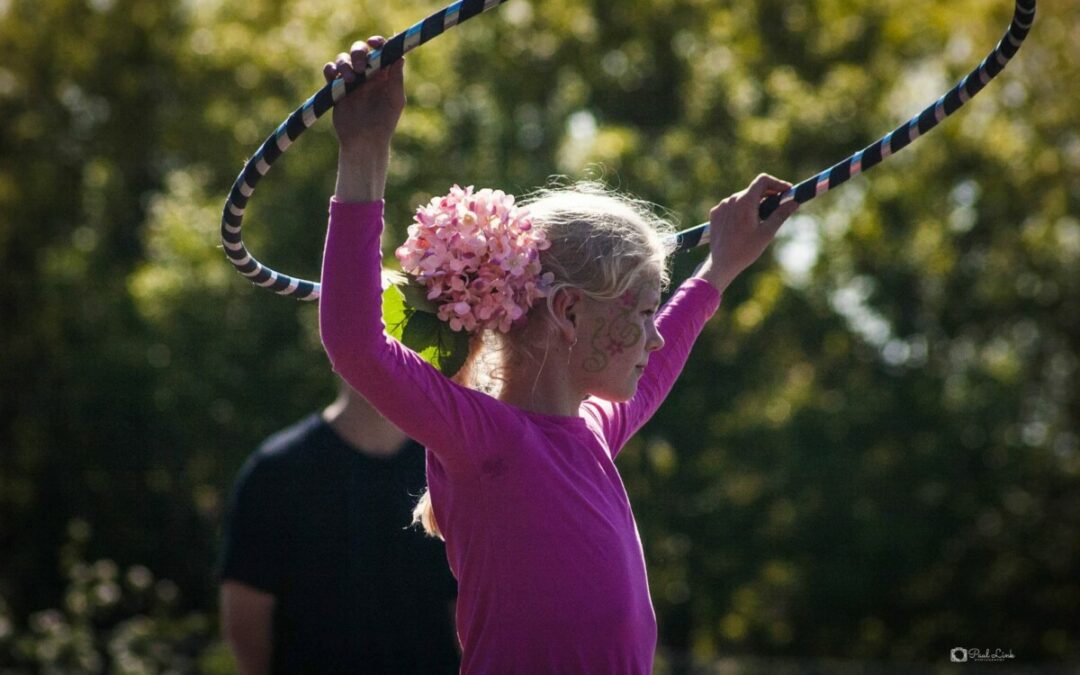
Student experiences: “Learning about Gamification in Adult Education”
In order for gamification in adult’s education to work, educators should resort to strategies such as promoting fun and engaging activities whilst creating a safe and supportive learning environment.
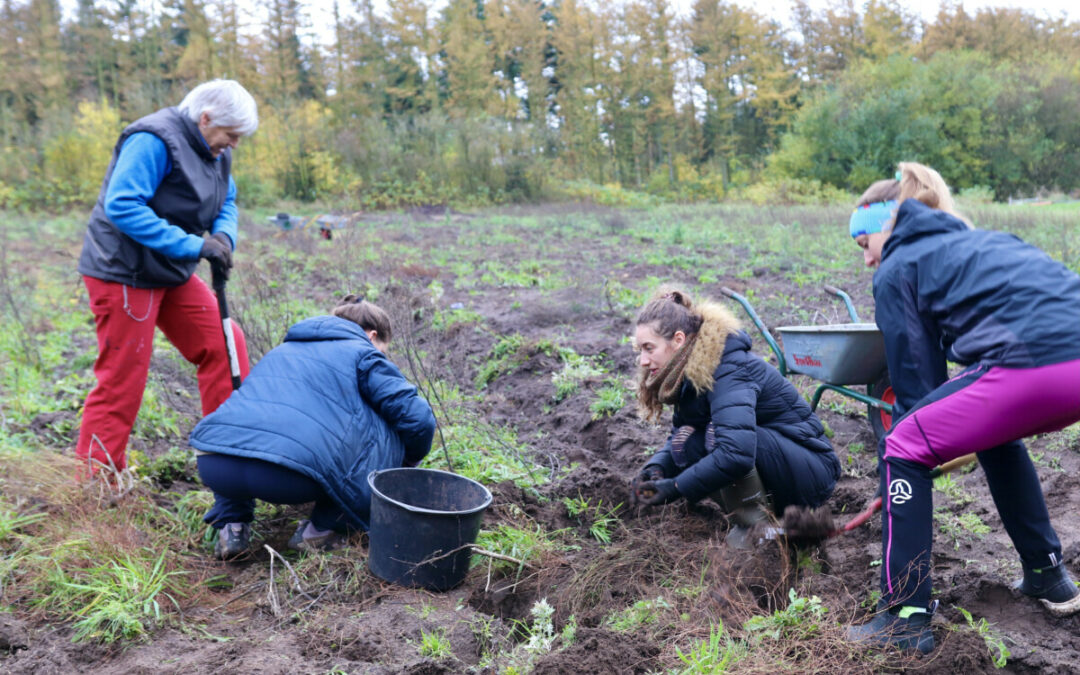
Student experiences: “We need intergenerational collaboration to face the Climate Crisis”
Intergenerational projects – like combining kindergarten and old age homes under the same roof – are showing us an enlightening new approach to planet protection.
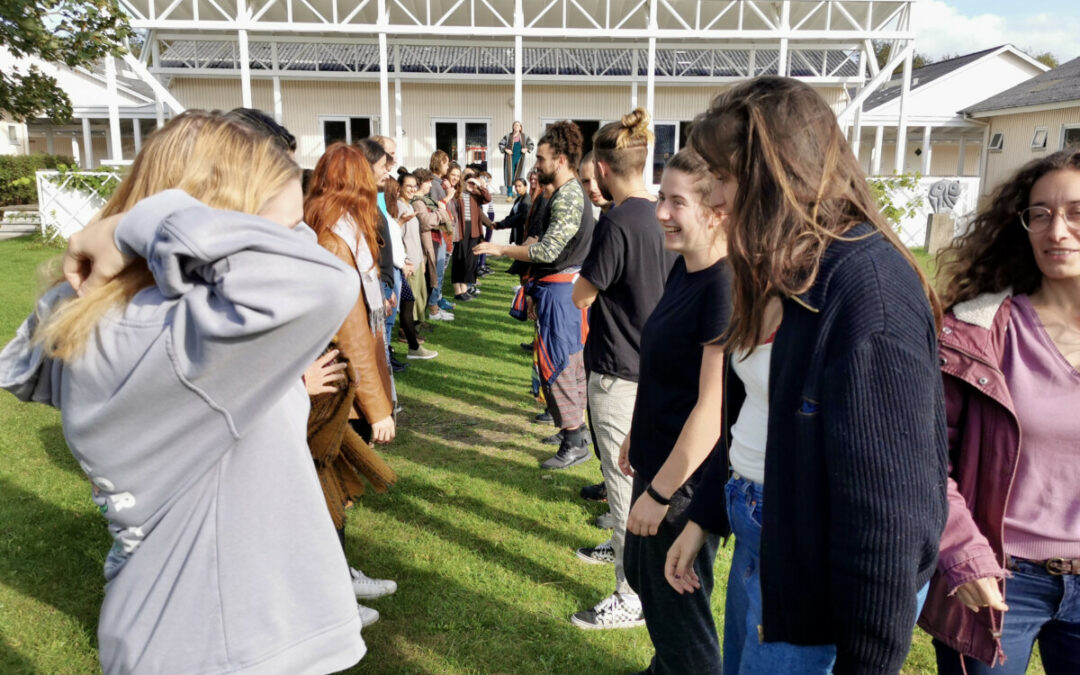
10 surprising elements of community life
If you are curious about what it is like to live in a community, here are 10 elements of community life that you might find surprising – drawn from the collective experience of our 50-year-old Community in Denmark.
Let’s start a discussion!
Did you like this article? Let us know what you think in a comment!
“These unconventional teaching methods might inspire you to approach learning for what it is – an inherently engaging and fulfilling activity.”
Here is what others think:
4 Comments
Submit a Comment


Student experiences: “Learning about Gamification in Adult Education”
In order for gamification in adult’s education to work, educators should resort to strategies such as promoting fun and engaging activities whilst creating a safe and supportive learning environment.

Student experiences: “We need intergenerational collaboration to face the Climate Crisis”
Intergenerational projects – like combining kindergarten and old age homes under the same roof – are showing us an enlightening new approach to planet protection.

10 surprising elements of community life
If you are curious about what it is like to live in a community, here are 10 elements of community life that you might find surprising – drawn from the collective experience of our 50-year-old Community in Denmark.

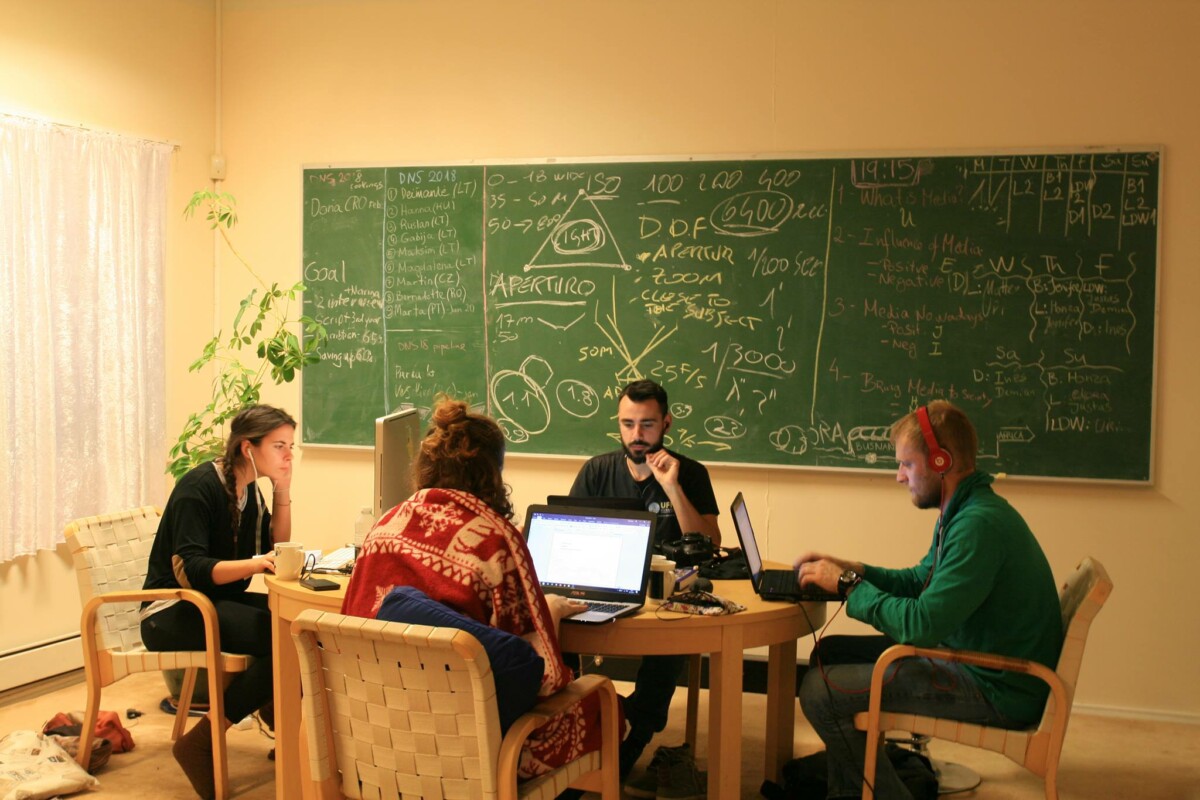
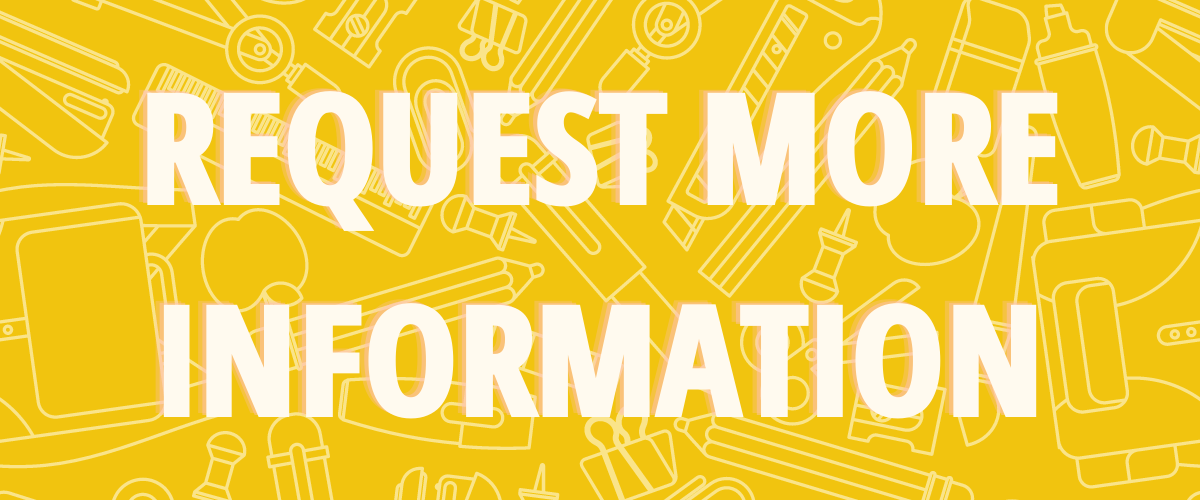

Thank you for this insightful article. 💚
It’s so obvious that the most effective approaches to teaching and learning combine theory and practice, and have a great proportion on *reflecting on your own experience*. Also, the knowledge that teaching and learning is a *social endeavour* is important to talk about – especially in these online times.
Thank you so much for making this article so interesting and for giving more insight to the period ❤️
Its amazing how efficient all these educational methods are. They are really build to fit the brain learnig procesess and utilize learning throught all sences. While at the same time they develop learne’s skills through rreflections, solution based thinking and teamwork. These methods are great inspiration for educators, thanks for sharing them.
Very nice article)
You should write a new one to conclude all those steps with sharing.
We can learn in many ways, but one of the most effective ones is through teaching others, since it requires you to gather your knowledge and understand it enough to be shared.
Knowledge not shared is wasted